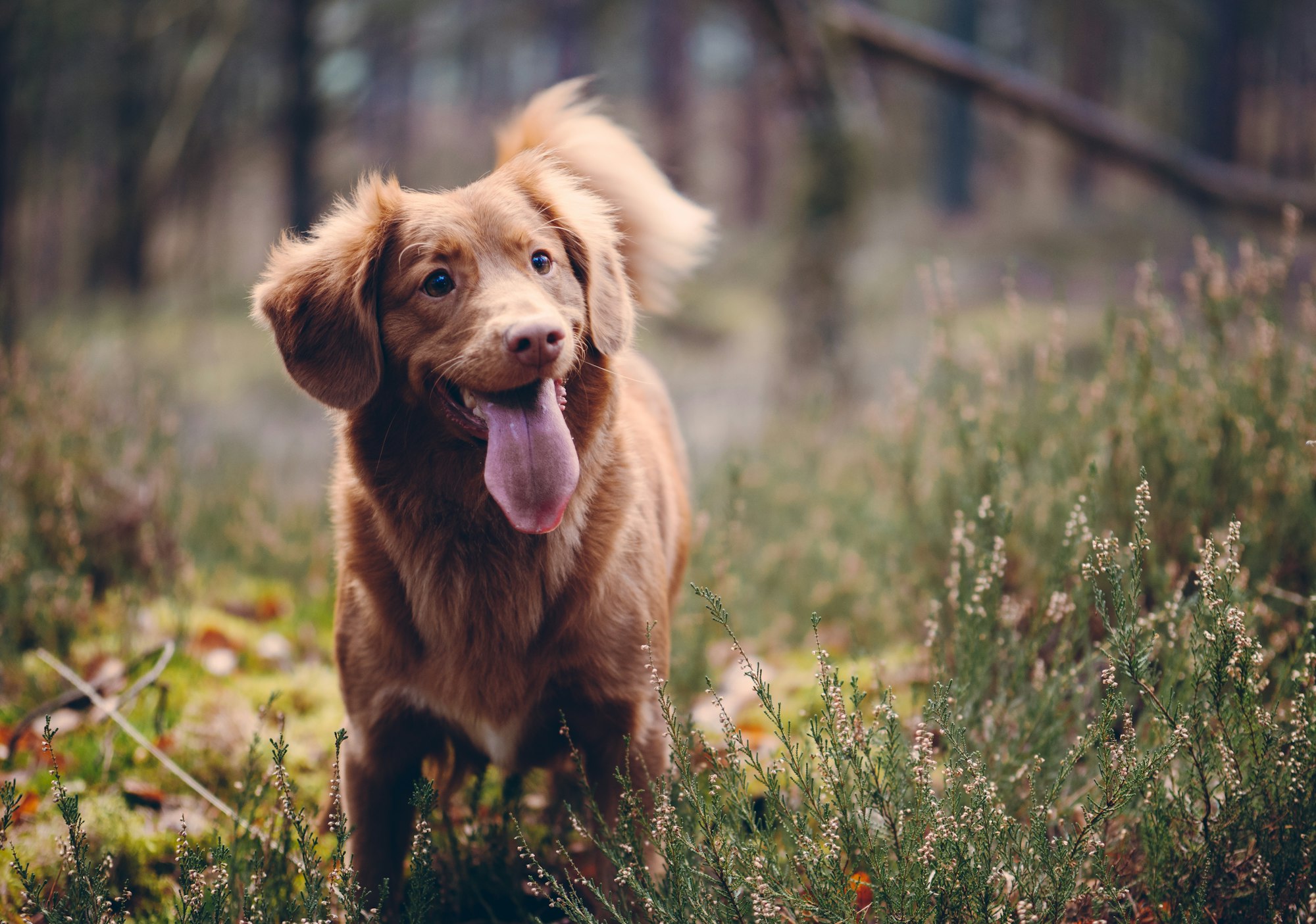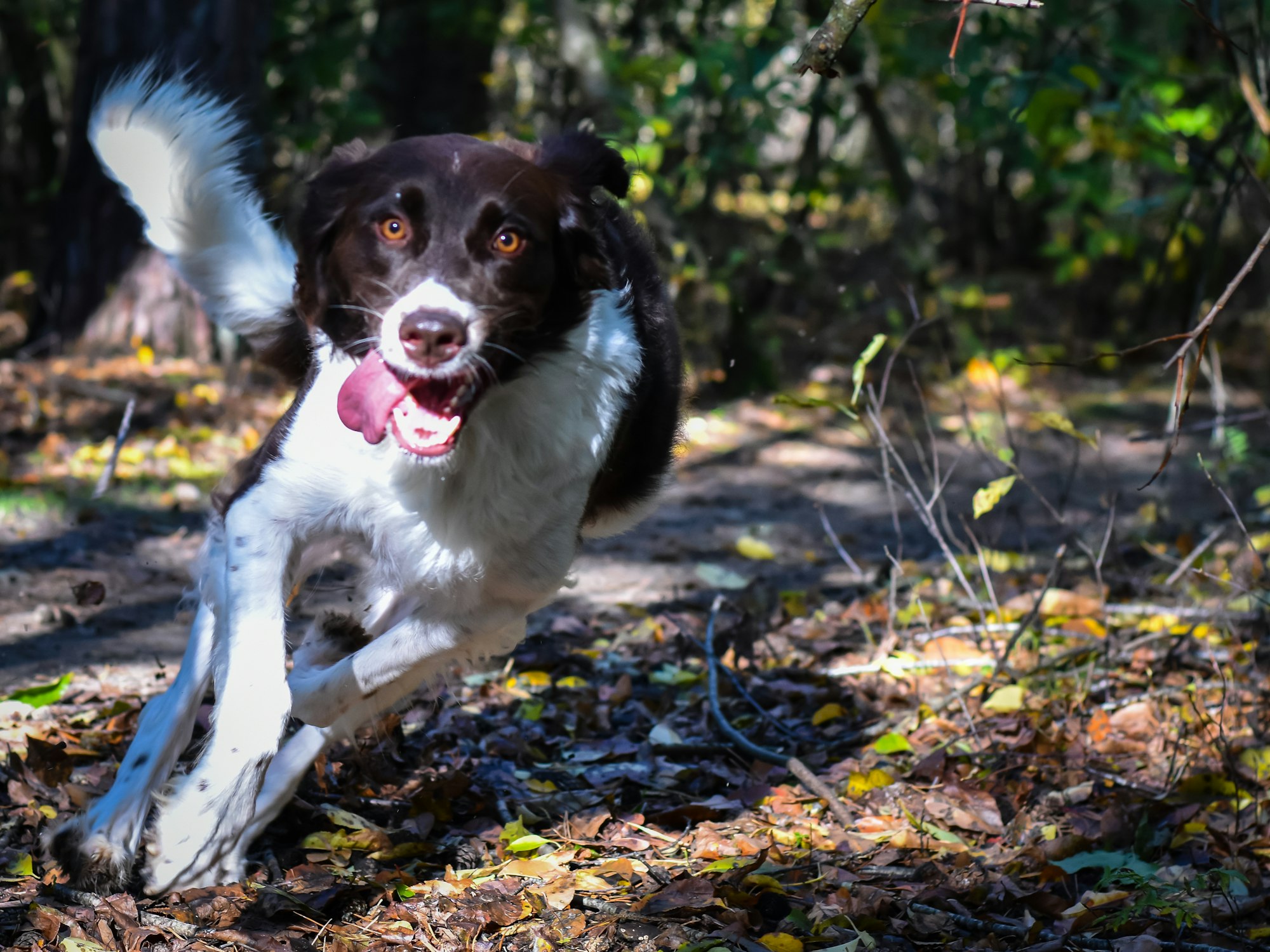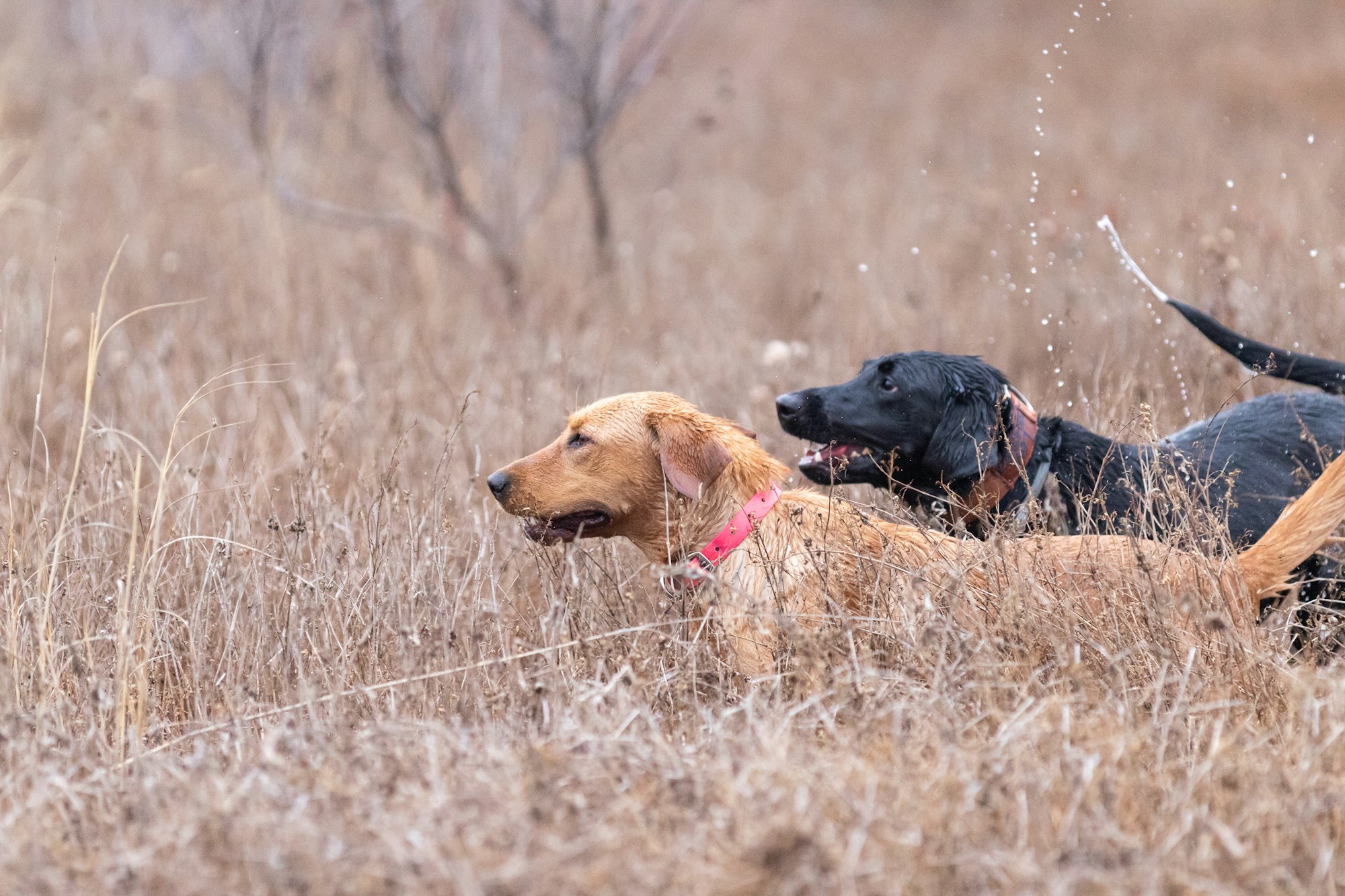The world of hunting dogs is vast and varied. With each breed comes a unique set of skills, temperaments, and uses. For generations, hunters have relied on these canines to assist them in various hunting activities, be it retrieving waterfowl or tracking big game. If you're a hunting enthusiast or simply a dog lover curious about these fantastic breeds, you're in the right place. Dive in as we explore the intricate world of hunting dogs and what makes each breed special.

Gun Dogs: Retrievers, Pointers, and Spaniels
When people think of hunting dogs, retrievers often come to mind first. These dogs are trained to fetch game, especially from water. The brown lab, for instance, is an exemplary retriever, known for its keen sense of smell and relentless work ethic. Then, there are pointers like the German shorthaired pointer, which signals game by "pointing" towards it, and spaniels like the Cocker Spaniel, trained to flush game out of dense vegetation.
Hounds: A Tale of Scent and Sight
Hounds are another popular hunting dog category, divided into two types: sight hounds and scent hounds. Sight hounds, such as the Greyhound, rely on their keen vision to spot and chase game. Scent hounds, like the Beagle, utilize their exceptional sense of smell to track prey. I once met a hunter who told me a fascinating story about his Beagle. He'd often joke that if his Beagle ever got a whiff of a corgi husky mix on the trail, the hunt would be delayed by hours due to the sheer curiosity of the dog!
Terriers: The Underground Hunters
The feisty and energetic nature of terriers makes them exceptional for hunting small game, especially those that burrow underground. Ever heard of the brown-dobermans? Although not strictly a terrier, their tenacity and sharp instincts can be likened to those of traditional terriers.
Versatile Hunting Dogs
Some breeds are jacks of all trades. The miniature collie, for example, has been used for various tasks, from herding to tracking, while the newfiedoodle is known for its prowess in water retrieval. These breeds are adaptable and can be trained for various hunting tasks, making them ideal companions for hunters who engage in diverse hunting activities.
Health and Care for Hunting Dogs
Hunting can be physically demanding, and it's essential to keep an eye on the health of your canine companion. A common question many hunters ask is, "do cane corsos shed?" While the Cane Corso does shed, it's relatively minimal, making it easier for hunters to maintain. However, always be observant. If you notice your dog shaking its legs or displaying unusual behavior, it might be time for a vet visit.
Beyond Hunting: The Adaptable Companions
It's worth noting that while many of these breeds excel in hunting, they're also wonderful family pets. They are loyal, protective, and often get along well with children and other pets. Just remember that their hunting instincts might kick in at unexpected times. It's not uncommon for a hunting dog to be distracted by the sight of a squirrel in the backyard or the scent of a neighboring dog.
The Gear: Equipping Your Canine for the Hunt
Just like hunters need the right equipment, so do their canine companions. Collars, harnesses, boots, and even protective vests can all play a role in ensuring your dog's safety and success in the field. And remember, a well-trained dog will always be your best asset, so invest time in training and building a bond with your furry friend.

Breed-Specific Traits: The Nuances of Hunting Dogs
When choosing a hunting dog, it's essential to understand the subtle differences in breed traits and how they can impact the hunting experience. Let's delve deeper into some of these breeds and their unique characteristics.
The Strength of the Dobermans
Though not traditionally seen as a hunting dog, the brown-dobermans carry an undeniable strength and intelligence. Their keen sense of alertness and swift reflexes make them suitable for specific hunting tasks, especially in areas where you might need protection from potential threats.
The Gentle Grace of Collies
When you hear the term miniature collie, you might envision a herding dog more than a hunting companion. While their primary role historically has been herding, their intelligence and agility can be harnessed for hunting tasks, especially when it involves tracking and corralling game.
The Fluff and Functionality of Newfiedoodles
A surprising name in the list for some might be the newfiedoodle. With their water-resistant coat and incredible swimming ability, these dogs are excellent for waterfowl hunting. Their gentle temperament also means they can transition seamlessly from a day out hunting to an evening at home with the family.
Queries and Concerns: Understanding Dog Behaviors
Many hunters, especially those new to the field, often have questions about their canine companion's behavior. For instance, the question "do cane corsos shed?" is a common one. Understanding these nuances can help in maintaining the health and happiness of the dog. Similarly, if you notice symptoms like your dog shaking its legs, it's crucial to address these concerns promptly. Such behaviors could indicate anything from a simple itch to more serious health issues.

The Petite Powerhouse: Corgi Husky Mix
The corgi husky mix is an intriguing blend of endurance and tenacity. While not a traditional hunting dog, their alertness and energy can certainly add a dynamic touch to a hunting trip. Their size might be deceiving, but remember, it's their heart and spirit that often counts more than stature.
Training and Adaptability: Preparing Dogs for the Hunt
The success of a hunting trip with a dog doesn't start in the field; it begins at home with consistent training and understanding of a breed's inherent abilities.
The Tenacity of Terriers
Terriers, known for their determination, often showcase their zest not just in chasing game but also in their training routines. When a terrier locks onto a scent or spots a potential prey, their concentration is unparalleled. However, this very tenacity requires handlers to be patient and persistent in their training approach.
The Challenge of Mixed Breeds
The rise in popularity of mixed breeds, like the corgi husky mix, presents new challenges and opportunities for hunters. These dogs often bring the best traits of both parent breeds. However, it's essential to recognize that their motivations might differ. Training a mixed breed might require a blend of techniques suited to its diverse heritage.
Health Checks and Behavioral Signs
A healthy dog is a happy hunting companion. Regular vet check-ups are essential, especially for active hunting dogs. Moreover, being observant of their behavior, like a dog shaking its legs, can provide early indicators of potential health issues. Addressing such concerns early can ensure many more successful hunting trips in the future.
Introducing Dogs to Different Terrains
A significant part of training involves familiarizing your dog with various terrains they'll encounter. Whether you're hunting in wetlands, dense forests, or open fields, ensuring your dog is comfortable and confident in these environments is crucial. For breeds like the newfiedoodle, who excel in water, it's a good idea to introduce them to different water bodies, ensuring they can handle both calm lakes and flowing streams.

The Emotional Bond: More Than Just Training
Beyond the technicalities of training, it's the emotional bond between the hunter and the dog that truly defines the experience. Sharing moments of joy, like watching a brown lab ecstatically fetch a duck or the shared exhaustion after a long day, makes the partnership truly special. It's these moments that make one realize hunting is not just about the sport but the shared journey.
The Technological Evolution in Dog Training: FI Dog Collars
In our modern age, technology is bridging gaps in various sectors, and the world of hunting and dog training is no exception. Enter FI dog collars, a revolutionary advancement designed to not only track your dog's location but also monitor their health, activities, and more. Let's weave the magic of FI into our exploration of hunting dogs.
Precision Training with FI Collars
When we talked about the tenacity of terriers and the challenge of training mixed breeds like the corgi husky mix, one of the crucial aspects was consistent training. FI dog collars come equipped with advanced GPS tracking. This means, during training sessions, you can now pinpoint your dog's exact location, especially beneficial in expansive terrains or thick forests.
Health Monitoring: Beyond Observing Behaviors
While we emphasized the importance of observing behaviors like a dog shaking its legs as an early sign of potential issues, FI dog collars take health monitoring a step further. These collars track your dog's daily activities, ensuring they're getting the right amount of exercise. Plus, they can offer insights into any irregularities in their movement patterns, acting as an additional layer of health check.
Acquainting with Different Terrains: Safety First
Introducing your dog to different terrains is essential, but so is their safety. If you're letting your newfiedoodle explore a new water body, the FI collar's waterproof feature ensures that you won't lose track of them. For those with wanderlust breeds like the miniature collie, the collar's real-time location tracking ensures you'll always have eyes on your adventurous companion.
Strengthening Emotional Bonds through Assurance
The bond between a hunter and their dog goes beyond mere training. It's about trust and assurance. With FI dog collars, you're not just getting a technological device; you're acquiring peace of mind. Whether you're out hunting with your brown lab or taking a leisurely stroll with your brown-dobermans, knowing you have the capability to monitor and track them enhances the mutual trust.
Conclusion:
In the intricate world of hunting dogs, diverse breeds like the tenacious terriers, versatile newfiedoodles, and loyal brown labs offer unique skill sets. While traditional training remains foundational, modern tools like FI dog collars bring precision tracking, enhanced health monitoring, and safety to the forefront.
From the playful antics of a corgi husky mix to the shared exhaustion after a day's hunt, it's the blend of trust, mutual respect, and technology that enriches the experience. As we journey through the vast terrains with our canine companions, the blend of age-old tradition with modern innovation ensures every hunt is memorable and secure.